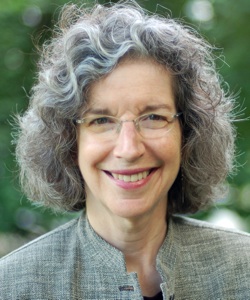Gendered Boundaries and Jewish Transformations: Reflections on the Cultural Complexity of Jewish Feminism
Gendered Boundaries and Jewish Transformations: Reflections on the Cultural Complexity of Jewish Feminism Video Player
April 9, 2010
Location:
Berkley Center Third Floor Conference Room Map
Jewish feminism has existed in many forms since the nineteenth century, but it took a particular turn during the late 1960s in response to the early stirrings of second wave American feminism. Its effects were more radical and far reaching within Judaism than any previous movement because it challenged fundamental assumptions about gender and Jewish law that were grounded in the Western enlightenment. Riv-Ellen Prell examined the ways in which gendered boundaries have challenged efforts to create American Jewish practices since the late nineteenth century and why Jewish feminism(s) continues to complicate, rather than resolve, the challenge. She discussed the meaning of equality in a pluralist system in order to understand the cultural dynamics of boundaries. The discussion drew on both ethnographic studies of American Jewish women in egalitarian Jewish communities and Jewish feminist writing about equality.
Discover similar content through these related topics and regions.
Image Gallery
Image Gallery
/1

Star of David on a Building in France
Featured Participants
Opens in a new window

